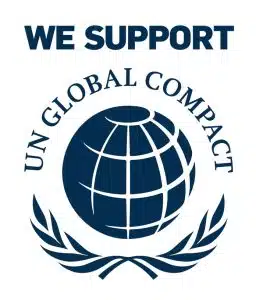Australia’s first organic beef marketing company has now become the only Australian beef company to join the world’s largest corporate sustainability initiative, the UN Global Compact.
OBE Organic Managing Director Dalene Wray said supporting the UN Global Compact as a Signatory underlines the farmer-owned company’s commitment to running a sustainable beef supply chain.
“We’re an organic company started by family farmers, so looking after the land, cattle and people has been in our DNA since day one,” Dalene said.
“We began to formalise this work in 2015 with our FLOURISH sustainability program, which involved our entire company working together to identify environment, animals, people and product topics we need to manage well.
“Joining the UN Global Compact requires little change to our existing sustainability work, but it does show our customers around the world we are serious about producing ethical and sustainable beef that consumers can feel good about buying.”
OBE Organic’s sustainability program goes beyond organic certification, and aims to manage risks and opportunities in a way that further reduces its impact and creates benefits along the supply chain.
By doing this in a strategic way, it is also contributing to the UN Sustainable Development Goals (SDG) – a key ambition of the UN Global Compact. Some of its actions include:
- Farmer productivity and environmental management: Supporting Grazing BMP to deliver best practice workshops for outback graziers (SDG 2 Zero Hunger)
- Gender and ethnic diversity: Becoming one of the first Australian agribusinesses to have a Reconciliation Action Plan, and promoting gender equality including via majority female Directors and employees (SDG 5 Gender Equality)
- Farm safety: Collaborating to deliver webinars and develop an online farm safety induction (SDG 8 Decent Work and Economic Growth)
- Animal health: Forming an animal welfare committee with supply chain representatives, and partnering with MLA Donor Company to explore how to use data to improve cattle health and welfare (SDG 12 Responsible Production and Consumption)
- Industry partnerships: Collaborating with five organisations in 2017/18 to deliver sustainability initiatives (SDG 17 Partnerships for the Goals).
“Collaboration is especially important for us to continually improve our work, and we are always looking for businesses who want to partner with an organic beef supply chain that’s serious about sustainability to get in touch,” Dalene said.
“Becoming a UN Global Compact Signatory is part of our commitment to being globally focussed and leading visibly, operating transparently and being part of a larger community of purpose that exists to create a better world.”









